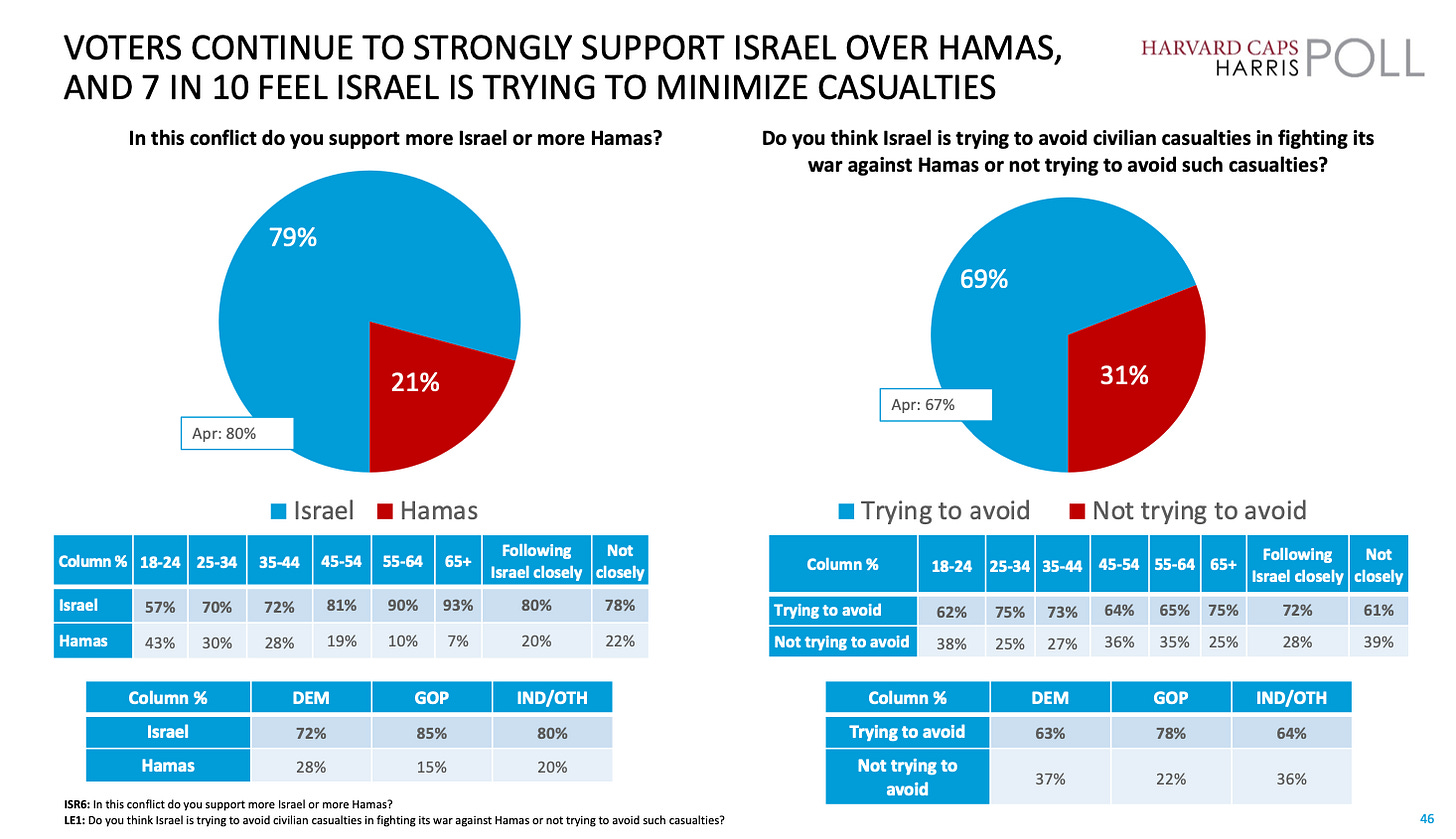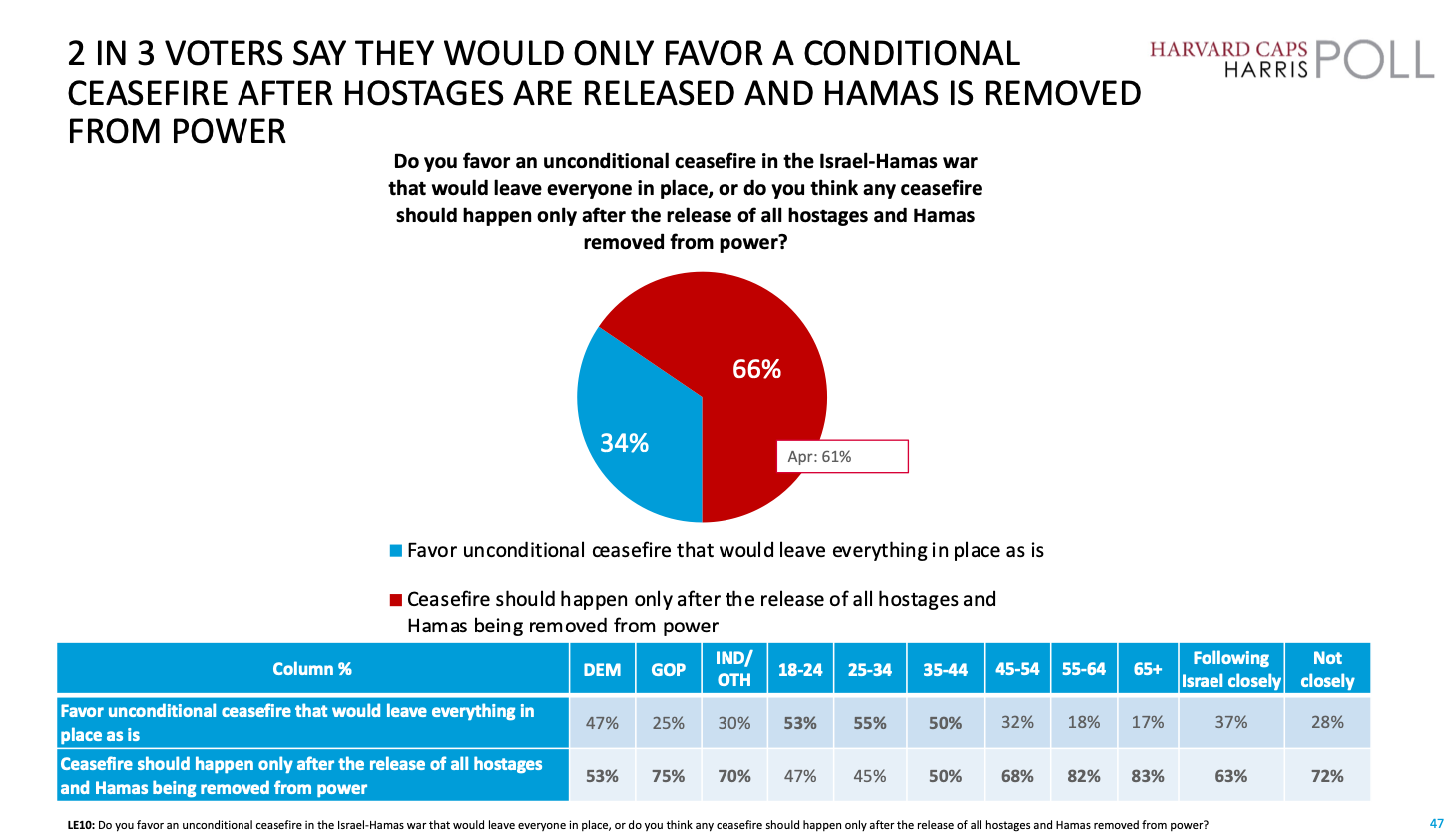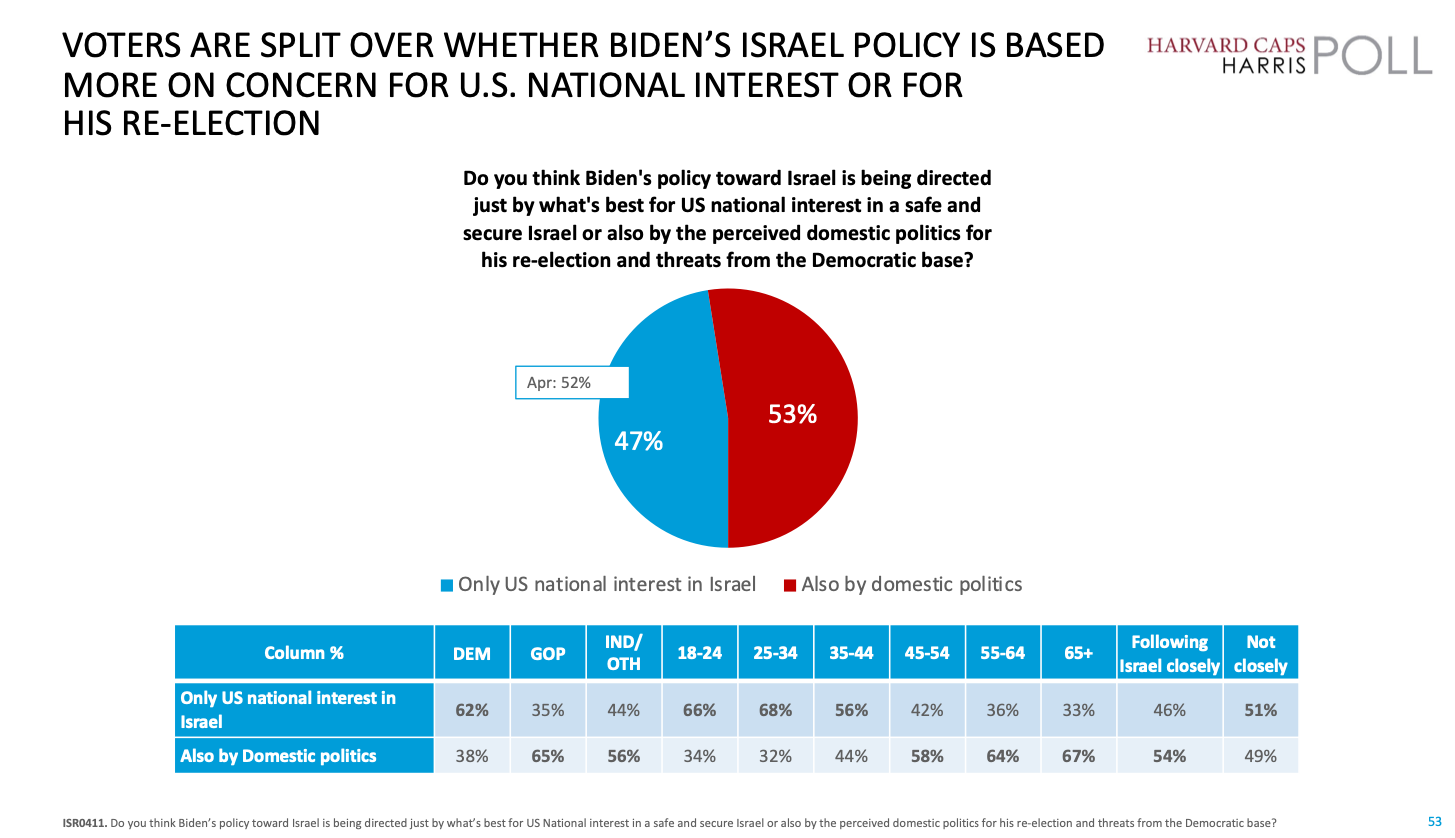DAY 228 OF THE WAR: Minister Karhi Causes PR Damage, Gaza Fighting Continues, Opinion Polls, Economy
Tel Aviv Diary, May 21, 2024
Sometimes, when I watch the news, I feel an overwhelming urge to throw something at my TV, iPhone, or any device delivering the news. The latest provocation was the decision by the Communications Ministry, led by the highly partisan and very right-wing MK Shlomo Karhi, to confiscate the broadcasting equipment of the Associated Press. The claim was that AP provided services to Al Jazeera, which had been closed down. It’s astonishing how many of our Ministers lack understanding of the world beyond their party primaries. AP provides content to thousands of news services all over the world. It is wild how easily our incompetent ministers undermine us by ordering the confiscation of equipment from a primary news service. The US administration has already requested that Netanyahu intervene.
Tonight, Karhi gave in and announced the AP’s equipment would be returned.
This is, of course, the story of the war. While the decision of the ICC prosecutor to request the arrest of Netanyahu and Gallant is abhorrent, it could have been avoided in so many ways. The incendiary statements—which I do not need to repeat—made by Ben-Gvir, Smotrich, and others helped provide ammunition to our enemies. The inconsistent policy on allowing aid—initially blocking it, then permitting it— has resulted in the worst possible outcome. We’ve lost the information battle and gained no leverage over Hamas. In most normal governments, cabinet members who damage the country’s interests are fired—but that could never happen in this current administration.
Now, let’s go back to the decision of the ICC. Beyond what I said last night about the actual charges being false, the system itself is fundamentally flawed. It’s one thing for the ICC to issue charges after a war has ended when they can dispatch independent investigators to the scene. On what basis can they indict Netanyahu and Gallant without a thorough investigation on the ground? Did they discover concrete evidence of starvation in Gaza? Was there proof of intentional civilian killings? None of these investigations were conducted.
JAKE SULLIVAN
Secretary of State Jake Sullivan has returned to the United States. It seems Netanyahu told Sullivan that Israel is not willing to join the mega-deal with Saudi Arabia. The mega-deal requires Israel to state that it will work to create an eventual Palestinian State. I believe Yair Lapid expressed it best today, saying he does not understand how someone who lies so frequently cannot lie just a little now—when it matters. But, of course, maintaining his coalition is more important to him than our future.
Frankly, it's very depressing.
GAZA
Fighting continues in Gaza, both in Jabaliya and in Rafah. Today, Chief of Staff Herzi Halevi visited the troops in Jabaliya and toured the tunnel where the IDF found the bodies of hostages. While in Jabaliya, Halevi stated:
We are in a war that we said from the beginning would be prolonged. Defensive positions have been dug here for years, and you can't dismantle this in a week or even a month. The mission, as the commander of the command said, is to kill as many commanders as possible, as many terrorists as possible, and destroy the infrastructure. This pressure, we very much hope, will also help us press to bring hostages alive, and we are ready to undertake dangerous and complicated operations to bring the bodies of our hostages back to a Jewish burial. This has great value, and I tell you, talk to the fighters about these things.
We are dismantling the military arm of Hamas, we want to bring our hostages home alive, and we want to bring those hostages who, unfortunately, are no longer alive back to a Jewish burial. These are vital missions. This message is that even if there was a place we didn't reach last time, and now we are reaching it, there is no place—no matter how many explosives are in the wall and how many shafts are booby-trapped—that can withstand an attack by an IDF task force.
This is how the IDF Spokesman described the fighting in Gaza today:
Division 98 forces continue fighting in the heart of Jabaliya. Combat teams from the Paratroopers Brigade and Brigade 460 have been operating in the area, eliminating several terrorists in the last 24 hours. Combat team fighters from Brigade 7 directed an Air Force aircraft that attacked and eliminated a terrorist cell that fired at the forces.
Division 162 forces continue fighting in Rafah. Givati Brigade forces identified a terrorist who fired mortar shells at the forces with no casualties. The forces directed an aircraft that attacked and eliminated the terrorists. Combat team fighters from Brigade 401 eliminated several terrorists in joint operations with Air Force forces and also located rockets and combat equipment in the area.
Division 99 forces continue operating in the Gaza Strip's central part. Combat team fighters from Brigade 679 identified a terrorist cell moving toward the forces, and in rapid coordination, an Air Force aircraft attacked and eliminated the terrorists.
In the last 24 hours, Air Force aircraft and fighter jets attacked and destroyed about 70 terrorist targets throughout the Gaza Strip. Among the targets attacked were military structures, weapon sites and warehouses, rocket launchers, observation posts, terrorist cells, and additional military infrastructure.
LEBANON
Today was significantly quieter after four consecutive days of intense fire in the North. It’s unclear whether the calm is the result of our successful operations in recent days, including the elimination of the Hezbollah officer in charge of rocket and missile fire in the Western sector. Nevertheless, there has been substantially more quiet, with only three rocket barrages today.
WEST BANK
Israel troops have entered Jenin with a substantial number of troops. It is believed that the Army has killed eight terrorists in the city so far. The operation is expected to last 24 hours or more.
HARVARD-HARRIS POLLS
Here are the latest Harvard Harris Polls. Once again, I caution that there has been criticism regarding the methodology of some of these polls.
ECONOMY
Israel and AI
A new study by the RISE Israel Policy and Research Institute in collaboration with Google reveals concerning trends, including a moderate increase in investments in generative AI compared to other countries and a projected shortage of local human capital. Positively, about 50% of 2023 investments were in generative AI.
Currently, Israel ranks seventh globally, down from fifth in 2020. In contrast, Singapore has risen from tenth to third place. The report highlights that over 60% of AI roles in Israel require advanced degrees, yet fewer than 700 master's graduates and only 100 PhD graduates in relevant fields join the workforce annually. Additionally, a significant portion of these graduates are part of a brain drain to other countries. However, I think the report ignores the talent released froma the Army each year, and while the Army does not currently create AI experts in the same way it does cyber experts, I believe that will change in the coming years.
Elbit
Elbit Systems will supply munitions for use by the IDF's ground forces over the next two years, amounting to approximately 2.8 billion shekels. This is against the backdrop of the ongoing war in Gaza and the continuing escalation on the front with Hezbollah in Lebanon. The ammunition production is expected to occur at all of Elbit's facilities across the country, including the IMI (Israel Military Industries) complex in Ramat Hasharon, which it is supposed to vacate at the end of next month. The Ministry of Defense is requesting the Israel Land Authority to delay the evacuation by at least a year and a half, exempting Elbit from paying fines for this delay due to the need for increased munitions production for the IDF.
Zim
The increase in maritime shipping prices, against the backdrop of Houthi threats to Red Sea trade, helped ZIM return to a profit in the first quarter after four loss-making quarters in 2023. At the same time, the results presented by the company, managed by Eli Glickman, did not meet analysts' expectations. ZIM ships moved 846,000 containers (TEU) in the quarter, compared to 768,000 containers in the same period last year – an increase of 10%. The average container price rose 4% to $1,452, compared to $1,390 in the same period the previous year.
The dual improvement pushed revenue up by 14% to $1.56 billion. Analysts expected stronger growth of 15.5%, reaching $1.59 billion in revenue. The revenue upgrade turned ZIM's operating profit to $167 million, compared to a loss of $14 million in the corresponding quarter. The net profit for the quarter amounted to $92 million compared to a loss of $58 million in January-March 2023. Earnings per share stood at 75 cents, 31% lower than market expectations of $1.09. The company announced that it would distribute a dividend of $28 million in June.
–––––∞–––––∞–––––∞–––––∞–––––∞–––––∞–––––∞–––––
A PIECE OF HISTORY
Resistance to Israeli Rule
The Fatah, also known as the Palestinian National Liberation Movement, was founded in 1959 by a group of Palestinian exiles, most notably Yasser Arafat, Khalil al-Wazir, and Salah Khalaf. Fatah's primary objective was the establishment of an independent Palestinian state through armed struggle against Israel. Fatah gained significant prominence in 1964 when it joined the Palestine Liberation Organization (PLO), becoming the dominant faction within the PLO.
After the Six-Day War, Yasser Arafat became convinced that the Arab states could not be relied upon to “liberate” Palestine. With Israel controlling the West Bank, Arafat hoped to set up a guerrilla movement there. In September 1967, Arafat began attacks in the West Bank, targeting Israeli patrols and setting off bombs in towns and villages. The PLO expanded its attacks into Israel proper on November 22, 1968, when a car bomb went off in the Machaneh Yehudah market in Jerusalem, killing 11 Israelis.
While the attacks caused some unrest, Israeli security forces were very efficient in locating the terrorists and either killing them or arresting them. By the end of 1968, 1,400 Fatah members had been arrested in the West Bank. Arafat, who had been hiding in Nablus, decided it was unsafe to remain there and embarked to Jordan.
Fatah then tried to attack Israel from Jordan, launching raids across the mostly unguarded border. However, most of the attackers were intercepted and killed. Before long, the border was better sealed, and that avenue of attack became untenable. Fatah then turned to launching mortars and Katyusha rockets at Israeli communities near the border. Israel responded by firing on Jordanian towns and army positions. These actions and aerial attacks by Israeli jets brought an end to the cross-border firing as well.














Dear Marc Schulman
I have considered many times to discontinue my subscription to your new-mail because I don’t share many of you views. But I couldn’t make myself do it - your emails are too interesting and with regard to the actual news your reports are more accurate than what I read elsewhere. I especially like the Historical bit of your mails. Because you said that you participate in the demonstrations against the government and you are for new elections I would like to know from you the following: - what kind of political candidate would you endorse? Is there such a candidate among the politicians in Israel?
With regard to the lack of a plan for ‘the day after’ - what would you suggest such a plan look like? Please provide feasible suggestions (no wishful thinking!).
I would really appreciate your answers to my questions
Thanks
M